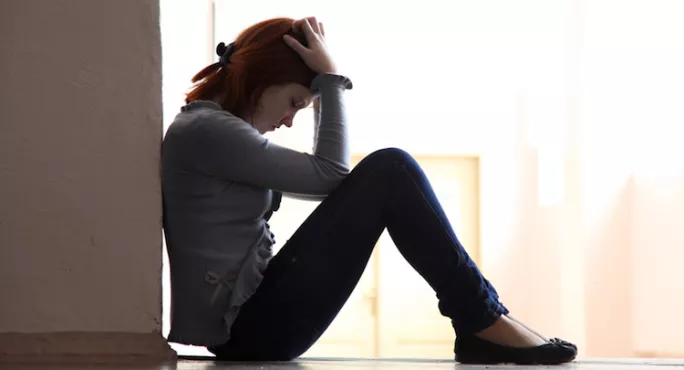One in three teenage girls suffers from “psychological distress” by the time they start studying for their GCSEs, according to government research.
A Department for Education report has revealed that 37 per cent of Year 10 girls are experiencing some sort of symptom of mental ill health.
The study of 30,000 teenagers showed that girls were more than twice as likely to suffer from psychological distress than boys, of whom just 15 per cent said they were affected by symptoms, such as feeling worthless or unhappiness.
Psychological distress among teenage girls was also worsening, the research showed, with the proportion suffering from poor mental well being increasing from 34 per cent in 2005, up to 37 per cent in 2014.
“While girls were already displaying greater levels of psychological distress than boys in 2005 it is striking that their situation worsened between 2005-14,” the report says.
The researchers suggested that part of the problem was linked to the increased impact of social media on young people’s lives, as well as growing concerns about their future employment and financial security in later life.
The study also revealed that teenagers from more advantaged backgrounds were more likely to suffer from the symptoms of psychological distress.
“There appears to be an association between ‘advantage’ and increased average levels of psychological distress,” the report states.
In households where at least one parent has a degree-level education, teenagers are more likely to suffer from depression and anxiety, the report adds.
The finding led researchers to suggest that the impact of “pushy parents” could be behind the rise in poor mental well-being, particularly among girls.
“It is also possible that young people in more advantaged households may be more aware of the challenging macro-economic climate which potentially awaits them in later years due to their differing media consumption patterns,” the reports states.
However, teenagers in 2014 were less likely to take part in “risky behaviour”, such as drinking or drug taking, than their counterparts in 2005.
Just 12 per cent of teens said they drank alcohol compared to 30 per cent in 2005, while reports of truancy fell from 21 per cent to 11 per cent.
A DfE spokesperson said children’s mental health was a priority for this government.
“We are putting a record £1.4 billion into transforming the dedicated mental health support available to young people across the country and are working to strengthen the links between schools and mental health services,” the spokesperson said.
Want to keep up with the latest education news and opinion? Follow TES on Twitter and like TES on Facebook




